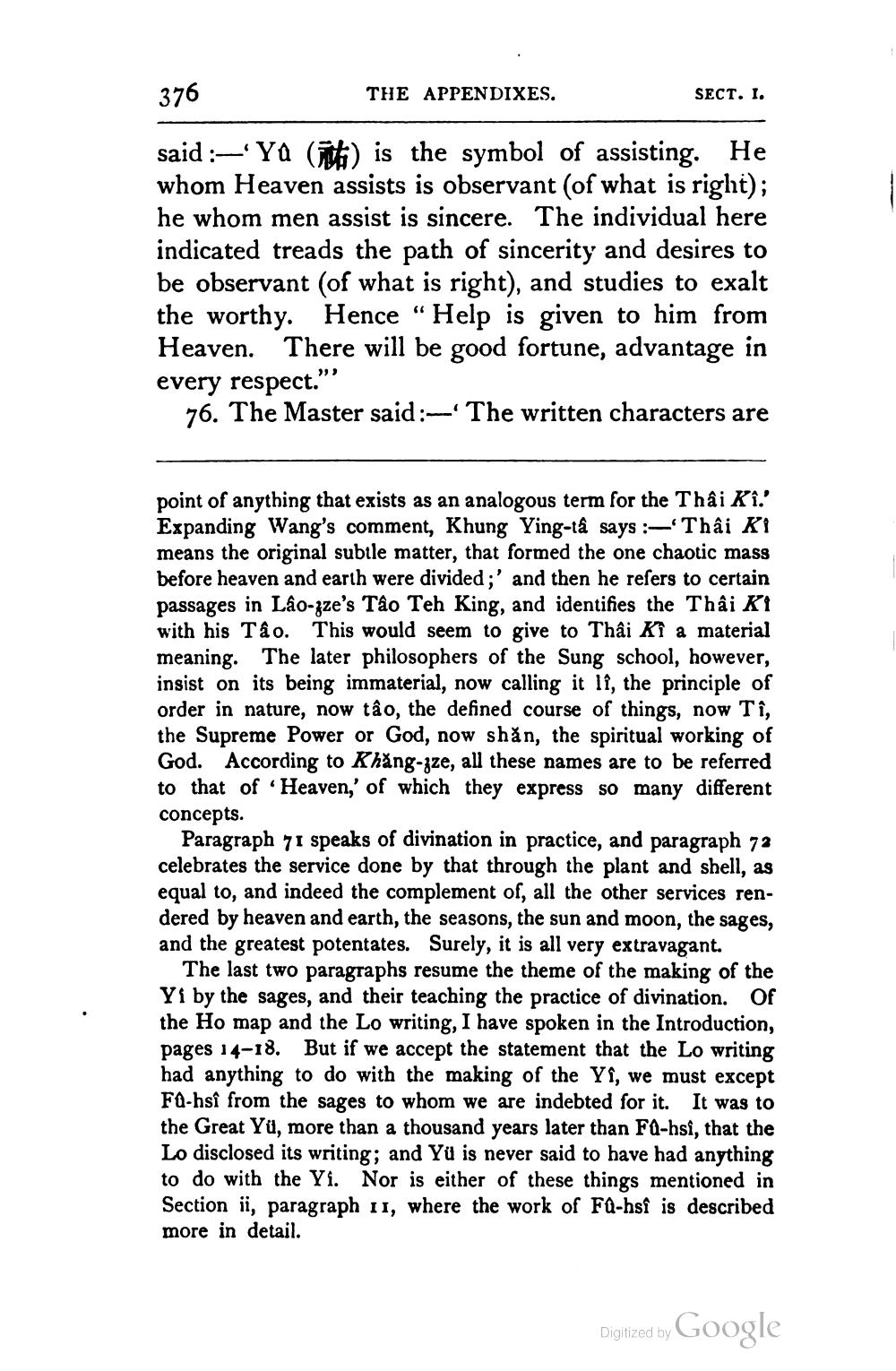________________
376
THE APPENDIXES.
SECT. I.
said : Ya (Ft) is the symbol of assisting. He whom Heaven assists is observant (of what is right); he whom men assist is sincere. The individual here indicated treads the path of sincerity and desires to be observant (of what is right), and studies to exalt the worthy. Hence “Help is given to him from Heaven. There will be good fortune, advantage in every respect."
76. The Master said:- The written characters are
point of anything that exists as an analogous term for the Thai Ki.' Expanding Wang's comment, Khung Ying-tâ says :— Thâi Ki means the original subtle matter, that formed the one chaotic mass before heaven and earth were divided;' and then he refers to certain passages in Lao-zze's Tâo Teh King, and identifies the Thai Ki with his Tão. This would seem to give to Thâi Ki a material meaning. The later philosophers of the Sung school, however, insist on its being immaterial, now calling it lî, the principle of order in nature, now tão, the defined course of things, now Ti, the Supreme Power or God, now shăn, the spiritual working of God. According to Khăng-gze, all these names are to be referred to that of Heaven,' of which they express so many different concepts.
Paragraph 71 speaks of divination in practice, and paragraph 72 celebrates the service done by that through the plant and shell, as equal to, and indeed the complement of, all the other services rendered by heaven and earth, the seasons, the sun and moon, the sages, and the greatest potentates. Surely, it is all very extravagant.
The last two paragraphs resume the theme of the making of the Yi by the sages, and their teaching the practice of divination. Of the Ho map and the Lo writing, I have spoken in the Introduction, pages 14-18. But if we accept the statement that the Lo writing had anything to do with the making of the Yi, we must except Fa-hsî from the sages to whom we are indebted for it. It was to the Great Yü, more than a thousand years later than Fd-hsî, that the Lo disclosed its writing; and Yü is never said to have had anything to do with the Yi. Nor is either of these things mentioned in Section ii, paragraph 11, where the work of Fa-hsî is described more in detail.
Digitized by Google




